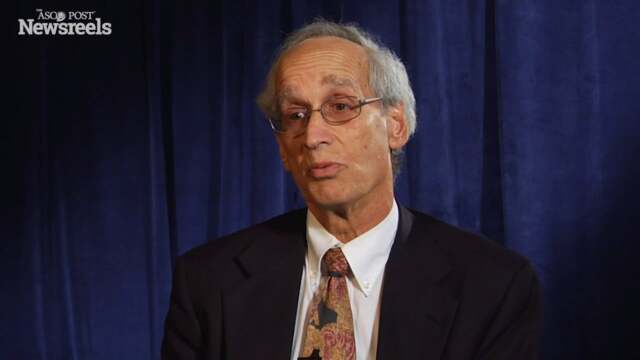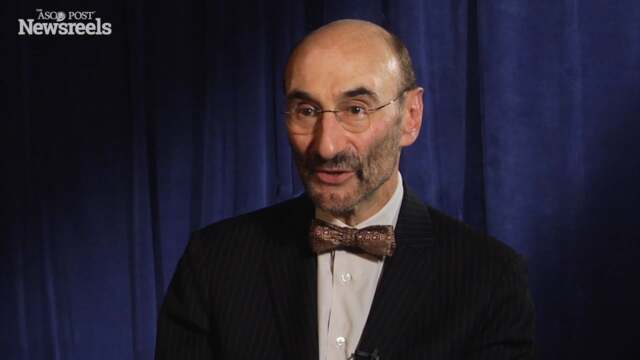James B. Yu, MD, on RTOG 0415: Fractionation Schedules in Patients With Low-Risk Prostate Cancer
2015 ASTRO Annual Meeting
James B. Yu, MD, of Yale School of Medicine, summarizes the plenary lecture on results from the NRG Oncology/phase III study comparing two fractionation schedules for low-risk prostate cancer (Abstract LBA6).
Joel E. Tepper, MD
Joel E. Tepper, MD, of the University of North Carolina School of Medicine, discusses the ways in which SBRT has changed radiotherapy, as demonstrated in key studies presented at this year's meeting on stereotactic body radiotherapy for liver metastases and hepatocellular carcinoma, and borderline resectable and unresectable pancreatic tumors (Abstracts 253, 255, 351, 357).
Catherine C. Park, MD
Catherine C. Park, MD, of the University of California, San Francisco, summarizes results from three clinical trials of radiation therapy for various cancers: metastatic melanoma, oropharyngeal squamous cell carcinoma, and breast cancer (Abstracts 215, 3, and LBA7).
Samuel Chao, MD
Samuel Chao, MD, of Cleveland Clinic, discusses the QMAP program and data-driven management, which offer ways to improve consistency and drive quality in radiation oncology departments (Abstract 39).
Bruce Minsky, MD
Bruce Minsky, MD, of MD Anderson Cancer Center, discusses two important papers: results from a prospective trial on quality-of-life outcomes for low-risk HPV-associated oropharyngeal squamous cell carcinoma, and a prostate cancer radiation therapy study (Abstracts 3, 4).
Stephen G. Chun, MD
Stephen G. Chun, MD, of MD Anderson Cancer Center, discusses the comparison of 3D conformal and IMRT outcomes for locally advanced non-small cell lung cancer (Abstract 2).





